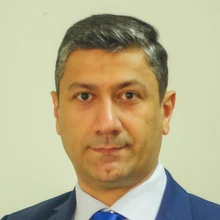
Modi Courts Putin with an Eye on Trump’s Disapproval  By Shanthie Mariet D’SOUZA, PhD, founder & president, Mantraya Institute for Strategic Studies (MISS) By Shanthie Mariet D’SOUZA, PhD, founder & president, Mantraya Institute for Strategic Studies (MISS)
Strategic autonomy worked when Washington was indulgent. Now India must choose what matters more.
It may be no more than an annual ritual: the Indian Prime Minister and the Russian President meeting each other alternately in either country. However, the current geopolitical churn creates a special interest in Vladimir Putin’s impending visit to India, tentatively planned for the first week of December 2025, to attend the 23rd India-Russia Summit. He is expected to devote a large part of his meeting with Narendra Modi to finding ways to keep the strategic relationship alive amid New Delhi’s continuing attempts to arrive at a compromise trade deal with Donald Trump’s America. Unlike Putin’s India visit in 2021, which was a quieter affair, New Delhi is now laying out the trappings to greet the Russian President. Although the visit may not witness the grand optics mostly reserved for US leaders, a slew of preparatory visits by senior officials from either side are underway to make Putin’s official trip appear out of the ordinary. READ MORE
- EGF Editor |
Published on EGF: 25.11.2025
| External Relations
-
Will a Trade Deal Repair India-US Ties?  By Shanthie Mariet D’SOUZA, PhD, founder & president, Mantraya Institute for Strategic Studies (MISS) By Shanthie Mariet D’SOUZA, PhD, founder & president, Mantraya Institute for Strategic Studies (MISS)
Existential differences and longstanding distrust make the current normalisation of relations deeply unstable.
New Delhi’s optimism about Trump’s return has given way to punitive tariffs, stalled negotiations, and diplomatic drift.
For the past several months, Indian negotiators have been trying, albeit unsuccessfully, to finalise a trade deal with the United States. On several occasions, negotiators, including India’s commerce minister and its chief economic adviser, have hinted at an impending breakthrough. Advanced-stage negotiations have been cited, or even an “intuition” that the bilateral trade agreement could be signed before 30 November, and that it would lower the punitive 50% tariff imposed by the Trump administration on Indian imports to about 10-15%. While “hope still floats” in New Delhi, there is an overall assessment that India-US relations are in a downward spiral and will struggle to recover. The non-conclusion of the trade deal is an unexpected development for the government in New Delhi, which seemed to have preferred the return of a Republican administration in Washington, one that doesn’t make human rights, religious and press freedoms important pillars of its foreign policy. However, after taking office, Trump unveiled a vastly different India policy that essentially wipes out the fond memories of his first term. READ MORE
- EGF Editor |
Published on EGF: 13.11.2025
| External Relations
-
Is the India–China détente real?  By Shanthie Mariet D’SOUZA, PhD, founder & president, Mantraya Institute for Strategic Studies (MISS) By Shanthie Mariet D’SOUZA, PhD, founder & president, Mantraya Institute for Strategic Studies (MISS)
Existential differences and longstanding distrust make the current normalisation of relations deeply unstable.
This week (editor’s note: i.e. October 24- 28, 2025), India’s private airline Indigo flew one of its A320 planes from Kolkata to Guangzhou. It was the first direct flight from India to China in five years, following its halt during the Covid-19 pandemic and the souring of relations between the two neighbours in 2020 amid the border standoff that extended the freeze. In November, more flights, including Chinese carriers, will take to the sky, connecting New Delhi with Chinese cities. The resumption of direct air services is part of the increasing number of confidence-building measures undertaken by both countries to move past a history of distrust and adversarial relations. A détente is seemingly underway. However, on closer examination, the embrace appears more cautious and fragile. In recent months, both sides have unveiled more confidence-building measures. READ MORE
- EGF Editor |
Published on EGF: 07.11.2025
| External Relations
-
Azerbaijan-Russia: Frenemies Forever?  By Tabib HUSEYNOV, independent policy analyst and researcher By Tabib HUSEYNOV, independent policy analyst and researcher
Azerbaijan-Russia relations have experienced a series of compounding crises since early 2025, raising questions about the future of Russian influence in the South Caucasus. This paper examines the underlying causes and strategic consequences of this shift in bilateral relationship, highlighting the decline of Russia’s regional influence, alongside Azerbaijan’s emergence as a more autonomous and confident regional power. The paper argues that Azerbaijan’s evolving strategic posture, underpinned by its alliance with Türkiye, its central role in transregional connectivity projects, and its relative economic resilience, has empowered Baku to engage Moscow in a more assertive and transactional relationship. At the same time, areas of interdependence remain, particularly in trade, transport infrastructure, and close humanitarian-cultural contacts, posing both risks and opportunities. The paper concludes that the future of Azerbaijan-Russia relations will hinge on Moscow’s ability to internalize the new power realities in the South Caucasus.
READ MORE
- EGF Editor |
Published on EGF: 31.10.2025
| External Relations
-
The Limits of Engagement in Afghanistan-Pakistan Relations  By Shanthie Mariet D’SOUZA, PhD, founder & president, Mantraya Institute for Strategic Studies (MISS) By Shanthie Mariet D’SOUZA, PhD, founder & president, Mantraya Institute for Strategic Studies (MISS)
Where once Islamabad and Kabul could calm tensions between them bilaterally, external mediation was needed this time around. There have been three ceasefire agreements between Afghanistan and Pakistan in less than two weeks. Two agreements collapsed or were violated before a final one was reached in Doha on October 19, which has held as of writing. These fragile, imperfect, yet frequent arrangements to cease hostilities, however, reveal three different dynamics between the two friends-turned-foes: first, the cordiality of the past is no longer a restraining factor for carrying out military measures against one another; second, these measures and counter-measures, however, won’t reach a point of truly destructive escalation; and yet, third, both countries are no longer able to resolve their differences bilaterally and need the assistance of external mediators indicating deep schisms and distrust in the relationship. READ MORE
- EGF Editor |
Published on EGF: 31.10.2025
| External Relations
-
How Azerbaijan Reshaped South Caucasus Geopolitics
 By Aytaс MAHAMMADOVA, Energy Security Expert affiliated with the Caspian-Alpine Society By Aytaс MAHAMMADOVA, Energy Security Expert affiliated with the Caspian-Alpine Society
The year 2020 marked a watershed moment in the modern history of the South Caucasus, a turning point that fundamentally altered the region's geopolitical landscape. Azerbaijan, after 30 years of patient diplomacy punctuated by military confrontations, took decisive initiative and made history. The 44-day war that autumn demonstrated not only Azerbaijan's military capabilities but also its strategic determination to resolve the protracted Karabakh conflict through force when diplomatic channels proved exhausted. This bold move transformed Azerbaijan from a passive player awaiting international mediation into an active architect of its own destiny and, by extension, the region's future. Azerbaijan’s post-Karabakh victory and subsequent strategic initiatives have positioned it firmly on the path to middle-power status. By leveraging its geographic location at the crossroads of Europe and Asia, its energy resources, and its growing diplomatic influence, Azerbaijan has demonstrated the ability to shape regional agendas beyond its immediate borders. READ MORE
- EGF Editor |
Published on EGF: 31.10.2025
| External Relations
-
Restoration of All Regional Communications Is the Only Viable Path to Lasting Peace in the South Caucasus  By Benyamin POGHOSYAN, PhD, Senior Research Fellow at the APRI Armenia By Benyamin POGHOSYAN, PhD, Senior Research Fellow at the APRI Armenia
Will the Trump Route for International Peace and Prosperity (TRIPP) set to connect Azerbaijan with Nakhichevan and Türkiye via Armenia help establish lasting peace and prosperity for all? Interestingly, if the Washington Declaration speaks about restoration of all communications, with reciprocal benefits for Armenia, the spotlight has been about the TRIPP and only about it. This oversight misses a vital point necessary for lasting peace and stability in the region. The launch of TRIPP alone will not establish real regional connectivity in the South Caucasus, or create the economic interdependence between Armenia, Azerbaijan and Türkiye needed to cement lasting regional peace and stability. Instead, focusing on the TRIPP will maintain Armenia’s isolation, restrict its geopolitical and geoeconomic flexibilities, while keeping the door open for future escalations over the longer term. READ MORE
- EGF Editor |
Published on EGF: 22.10.2025
| External Relations
-
Trump’s Bagram Claims and the Taliban’s Foreign Policy Choices  By Shanthie Mariet D’SOUZA, PhD, founder & president, Mantraya Institute for Strategic Studies (MISS) By Shanthie Mariet D’SOUZA, PhD, founder & president, Mantraya Institute for Strategic Studies (MISS)
On September 21, the Taliban rebuffed U.S. President Donald Trump for the second time in the last nine months. A day earlier, Trump had demanded control of Bagram air base in Afghanistan and had even threatened “bad things” if his demand wasn’t entertained. The Taliban spokesperson was categorical in his September 23 reply: “We will never agree to bargain away or hand over any part of our country.” On being summoned for an emergency meeting by Emir Hibatullah Akhunzada following Trump’s comments, Taliban defence and foreign ministers and intelligence chiefs rushed to Kandahar. There were separate meetings as well among the Taliban leadership. The recent rejection of Trump’s vague threats didn’t occur in a vacuum. READ MORE
- EGF Editor |
Published on EGF: 07.10.2025
| External Relations
-
Armenia–China Strategic Partnership: Another Step in Foreign-Policy Diversification  By Benyamin POGHOSYAN, PhD, Senior Research Fellow at the APRI Armenia By Benyamin POGHOSYAN, PhD, Senior Research Fellow at the APRI Armenia
Armenia and China established a strategic partnership on August 31, 2025, in the margins of the Shanghai Cooperation Organization (SCO) summit held in Tianjin, China. The establishment of a strategic partnership with China can be seen as another step within the Armenian Government’s “balanced and balancing foreign policy” or “pivot to the world,” as first articulated by the Armenia’s Secretary of the Security Council during the 2024 Applied Policy Research Institute (APRI) Armenia Forum. As part of its “pivot to the world,” a few weeks prior to the SCO summit Armenia applied for full membership of the organization (currently Yerevan is a dialogue partner) and in spring 2025, the Armenian Parliament adopted a law on launching the process of accession of the Republic of Armenia to the European Union. READ MORE
- EGF Editor |
Published on EGF: 01.10.2025
| External Relations
-
Azerbaijan Attempts Pragmatic Diplomacy at SCO Summit
 By Fuad SHAHBAZOV, Baku-based independent regional security and defence analyst By Fuad SHAHBAZOV, Baku-based independent regional security and defence analyst
On August 30, Azerbaijani President Ilham Aliyev arrived in the People’s Republic of China (PRC) to attend the 25th Meeting of the Council of Heads of State of the Shanghai Cooperation Organization (SCO) in Tianjin. Azerbaijan holds the status of a “dialogue partner” of the SCO but is not a full member. Aliyev’s attendance at the PRC-led SCO summit came amid simmering tensions between Azerbaijan and Russia, followed by mutual accusations and bellicose rhetoric of the Russian conservative establishment against Azerbaijan. In the face of Moscow’s open accusations and attempts to pressure Azerbaijan through frequent police raids against the local Azerbaijani diaspora, Baku is actively building alternative partnership formats in the Caucasus, Central Asia, and beyond. Since the beginning of 2025, Azerbaijan has significantly boosted its partnerships outside the Caucasus and Russia. The recent breakthrough in Azerbaijan’s diplomacy paved the way for establishing a strategic partnership with the PRC, which was cemented in an April agreement. READ MORE
- EGF Editor |
Published on EGF: 23.09.2025
| External Relations
-
|
|
